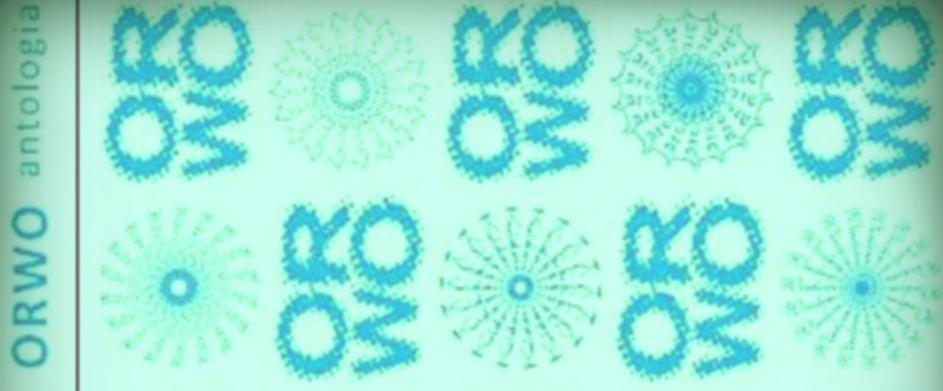Reportedly, the short story is the most important form of narration. In her famous essay published a few years ago, Olga Tokarczuk wrote: “The novel is supposed to entrance, while the short story is supposed to enlighten.” If we were to believe her, it would seem that we’re living in a state of unceasing trance, where short bursts of revelatory light are extremely rare.
Polish writers treat the short story genre like a stepchild – as a form of literary exercise, the spreading of wings before the proper flight into the bright skies of the novel. Even though we’ve had excellent short story writers – one needs only mention Jarosław Iwaszkiewicz, Kornel Filipowicz, or Marek Hłasko – we don’t have all that many writers who would continue the tradition. And releasing a short story anthology is a luxury affordable only by famous, established writers.
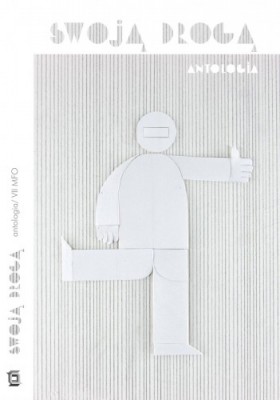 Swoją drogą (Your own way). CK Zamek,
Swoją drogą (Your own way). CK Zamek,
Wrocław, 120 pages, in bookstores from October 2011 Debuting with that type of book is seen as desperate – don’t count on any good reviews and you can kiss any chances of a writing career goodbye. The only thing you can hope for is that this book will bolster your chances of having a proper debut. Moreover, no publishing house would ever risk sinking money in a book of short stories written by an unknown author. Most of the short stories collections consist of individual short stories withouth any overarching theme, which makes them harder to describe with some catchy title. And that’s why most of these collections end up as pulp. Sylwia Siedlecka was one of the very few writers to successfully debut with a book of short stories. W.A.B. published her book, Szczeniaki (Pups), in 2010. But barely anyone read or heard about that book.
If we’re set on publishing a collection of short stories, they should comprise a single, integral unit – they’re more novel-like, and there’s less problems with coming up with a cover blurb and ideas for promotional campaigns. It’s easier for readers to connect with these types of books, because then they have more than just a single afternoon with a protagonist. And that is what trance-lovers need. Recently a few such collections have been published – for example Małgorzata Rejmer’s Toksymia, Italian pumps by Magdalena Tulli, and Justyna Bargielska’s Obsoletki – they all hide skillfully written short stories behind a novelistic facade.
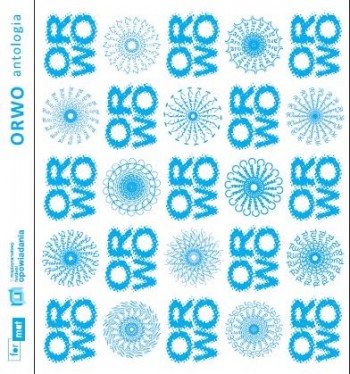 Orwo. CK Zamek and Format publishing house,
Orwo. CK Zamek and Format publishing house,
Wrocław, 124 pages, in bookstores from September 2011Despite interesting initiatives launched with the goal of revitalising the dying art of short story – with the most prominent of them being the International Short Story Festival in Wrocław – it’s still hard to find examples of artistic excellence in the field of short-form writing. Polish writers usually try to convert every idea they have into a novel – as if they’re afraid that it will evaporate before than can make a buck on it. Unfortunately, that tendency manifests itself quite clearly in the quality of their prose.
But in 2011 – especially in its last months – the market was flooded with short story anthologies. At least 8 of them were released – although the number might be higher, sometimes it’s easy to miss something in the fall/winter publishing frenzy. The releases included: Love in Wrocław (EMG), Warsaw Speaks (Warsaw Uprising Museum and Trio Publishing House), Orwo and Your Own Way (CK Zamek from Wrocław), 20 Years Under the Lamp (Lampa i Iskra Boża), The 2011 Anthology of Contemporary Polish Short Stories (Forma), Lem’s Voice (Powergraph) and 2011. Anthology of Polish Short Horror Stories (Forma).
A separate essay could be written on the last two anthologies, but the abundance of non-genre fiction itself is an excellent excuse to pose question about the condition of the contemporary Polish short story.
Let’s start with the basics – half of the aforementioned anthologies are based on an idea – this means that writers invited to participate in these projects had to show initiative, imagination as far as the fictional use of cities is concerned (Warsaw Speaks and Love in Wrocław) or a creative approach to their favorite characters from their childhood (Orwo). The three other include stories with different subjects because they’re either supposed to summarise the 20 years that the publishing house has been operational (as it is in the case of the anthology released by Lampa i Iskra Boża), are a collection of works that were selected at the short story competition in Wrocław and written at creative writing workshops (as it is in the case of the Your Own Way collection), or, unfortunately, are a quickly assembled mish mash of weak material (the Forma anthology).
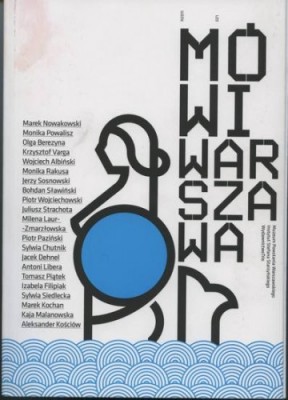 Mówi Warszawa (Warsaw Speaks), Warsaw
Mówi Warszawa (Warsaw Speaks), Warsaw
Rising Museum and Trio Publishing House,
292 pages, in bookstores from November 2011Slogging through these six anthologies in the past few weeks in a sort of reader paroxysm left me with the conclusion that the art of writing short stories is in trouble. Despite a wide spectrum of subjects – history, contemporary matters, family, love, childhood, betrayal, alcohol and so on – their realisation leaves much to wish for. Also, there’s very little sex in these anthologies. It seems that Polish authors got scared of the possible difficulties with releasing erotica. If some of the books touch upon that subject, they do it discreetly and without controversy (e.g. Stanisław Tekieli’s My Director from the Invention Factory or Kuczok’s Torment and Ekphrasis, slightly more sexually charged). The same goes for politics – unless it’s treated historically, to show the disastrous results of decisions of various governments (Warsaw Speaks) or used as a vessel for issues of political correctness, gender equality, and tolerance (Screams by Edward Pasewicz, On This Side of the Rainbow by Julia Fiedorczuk). Most of the writers, however, seem to be focusing on the everyday life of people, on normal, everyday affairs, just as the revolutionaries of the transformation period suggested.
Debutants and fairly unknown authors are the best at this sort of thing, and their best works were collected by Marta Mizuro in the anthology titled Your Own Way, the best of the six we mentioned. These pieces were written to satisfy a particular need, not with the hope of compensation – you can see that a lot of work was put into both the plot and the characters. Ten of the stories collected in the anthology come from the International Short Story Festival – they’re either prizewinning stories or pieces written in creative writing workshops. Under the watchful eyes of professionals, people crafted such gems as Guests by Iza Klementowska (a story about very special holiday spent with the hippies, reminiscent, in its lightness and humour, of the unpretentious Salinger school of writing stories); The Case of Judge Keller, by Jacek Świłło (a crime story about the disappearance of the eponymous judge, a successful mixture of science fiction and philosophy); or Never Stop Exploring, by Justyna Pobiedzińska (a story about love and madness, both of which befall the unfortunate protagonist who occupies himself with finding metal).
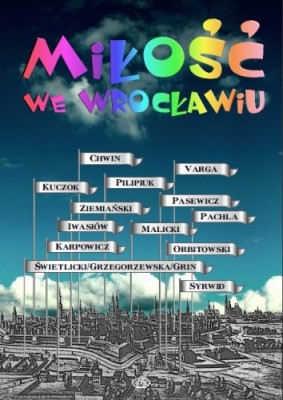 Miłość we Wrocławiu (Love in Wrocław), EMG,
Miłość we Wrocławiu (Love in Wrocław), EMG,
Wrocław, 268 pages, in bookstores from November 2011On the opposite pole we have the collection released by Forma, which kind of looks like a city after a storm – it’s a total mish mash. There are a few really good pieces in this anthology, like Dariusz Muszer’s Behind the Bend, a dark story about a pedophile, Olga Tokarczuk’s depressive Preserves for Life, or Natasza Goerke’s grotesque story titled Penetration. But most of the stories included in the collection are boring, lazy, and uninspired – written down in the form of weird impression, probably reflecting the inner life of authors, interesting to no one but themselves (Grzegorz Strumyk’s I’m Telling You, I Hate Myself by Irena Wiszniewska, or Farewell by Agnieszka Kłos), while others clearly look like commissioned pieces, written without any constructive idea behind them, even though they were authored by writers known for the quality of their output, like The Village by Jerzy Franczak and Wojciech Kuczok’s Mine of whispers. The collection looks like a result of a mass email requesting available stories sent out to all writers from some mysterious list – why were these particular writers asked to contribute and others weren’t? Why are the household names mixed with complete newcomers? Why do one-page stories sit next to longer pieces? This anthology is just full of riddles.
If it’s true that, in the words of Olga Tokarczuk – “a good short story might be a blessed experience for the reader. It can permanently alter your perspective, it can astonish, it can move your heart, make you laugh (...) It’s like this one, perfect bite. A good story stays in your memory for a long time and comes back to you with the intensity typical of private memories.” – then these anthologies will be a meager feast. You don’t remember much of the stories, the authors lack serious structural support, they don’t create interesting characters – and it’s so much easier to spoil everything in a short story than in a novel, in a story all the shortcomings are quickly revealed.
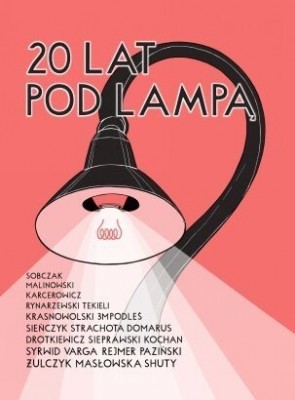 20 lat pod Lampą (20 Years Under the Lamp),
20 lat pod Lampą (20 Years Under the Lamp),
Lampa i Iskra Boża, Warszawa, 224 pages,
in bookstores from November 2011For the reader, Małgorzata Rejmer’s short stories might be the most surprising – especially given the fact that – like Krzysztof Varga – she’s the protagonist in half of them. Seems like we’re dealing with a rising talent of great proportions. She has three pieces in the aforementioned anthologies: the first one is an impressional (but interesting!) story collected in Dunin-Wąsowicz’s anthology, the second is a reportage from Romania found in Your Own Way, while the third is a funny, albeit a bit sad, piece about Moomins collected in Orwo. If someobody can find their way in all three of those wildly different styles, then it might be a sign of a great writer in the making.
Unfortunately, Warsaw’s potential was left untapped, despite Marek Kochan’s appeals to the writers he invited to contribute. But maybe the fact that Warsaw keeps overshadowing all the characters in these stories is just a testament to the force of the city? There’s not a lot of interesting characters in the anthology – the exception being Ice, a man in the midst of a mid-life crisis, from Kaja Malanowska’s Room, and a prostitute from Sylwia Chutnik’s Bożena from Poznańska St., although the latter story’s biased and interventionist character makes it hard to include it in the ranks of the “best” ones. Most of the stories are as forgettable as memories from New Year’s Eve – the foreground is occupied either by the city’s topography (like in the stories by Libera and Piątek) or its history – but the latter is either treated too sentimentally or has no interesting protagonists to root itself in (like in the stories of Olga Berezyna, Milena Laur-Zmarzłowska, and Piotr Wojciechowski). There are also stories that are so unclear, that they are bound to remain a riddle to the reader. Warsaw – the crippled city – turned out to be too much for the contributing authors to handle.
Wrocław was more lucky, as in the stories collected in the Love in Wrocław anthology it appears to be modern, colourful, and holding a good self esteem. There’s even space for sexual minorities in Wrocław (even though they’re unpleasantly treated by passersby, as evidenced in Pasewicz’s story), for people who are in love despite big age differences (350 recipes. How to make a fool of yourself – a guide by Ignacy Karpowicz, quite a funny story), there’s even a place for failed Casanova with a proclivity for classics of the cinema (Varga’s Moon Rover). The Wrocław stories aren’t breathtaking, but they don’t fall below a certain level – thanks to a careful selection of contributing authors and a very precise theme of the anthology (love seems to be a much better topic than the vague motif of the “city”).
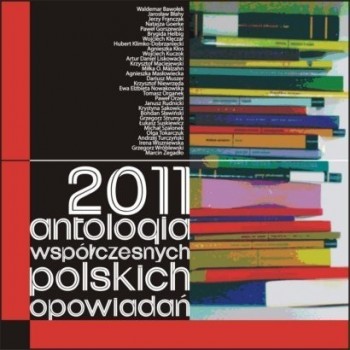 2011. Antologia współczesnych polskich opowiadań
2011. Antologia współczesnych polskich opowiadań
(2011. Anthology of Contemporary Polish Short Stories),
Forma Publishing House, Szczecin, 256 pages, in bookstores
from November 2011The two most peculiar of the anthologies, causing the most trouble from an interpretational standpoint, are 20 Years Under the Lamp and Orwo. The former is a collection of works selected from over two decades’ worth of material from Lampa [magazine - ed.], authored mostly by people anointed by Lampa’s editor-in-chief, Dunin-Wąsowicz; while the latter anthology collects stories by acclaimed authors (including Iwasiów, Bargielska, Orbitowski) who were tasked with resurrecting the character’s from the stories of their childhood. Orwo is also the most beautifully prepared of all the anthologies, every text is paired with illustrations of a good, contemporary artist.
Dunin’s ensemble is interesting, although the collection – consisting mostly of writings of old hands who nobody even remembers anymore – will reach primarily people with similar taste and fans of young, ambitious literature (Masłowska, Syrwid, Drotkiewicz, Żulczyk). Meanwhile Orwo turns out to be – after a slight moment of hesitation – a pretty solid piece of literature. Who would’ve thought that the theme of “heroes from our childhoods” will lead to such an outpour of ideas – ranging from processing trauma (Orbitowski, Nasiłowska), through acceptance of otherness (Fiedorczuk, Rudzka), up to a completely “out-there” approach to the subject of family, intimacy, and loneliness (Rejmer).
We need to practice if we are to master the difficult art of writing short stories – a genre where style, high culture of language, and the ability to take mental shortcuts are absolutely crucial. But unless we believe in this shorter form, nothing will happen – a strong belief in this genre might result in a pact between authors, publishers, distributors, and readers – united action of all these elements might just lead to a triumph of the short story. Even though some of the things that seem to be happening in the field of the short story – as evidenced by the last months of the past year – feel a bit misguided, it’s good that they happen at all.
translated by Jan Szelągiewicz

